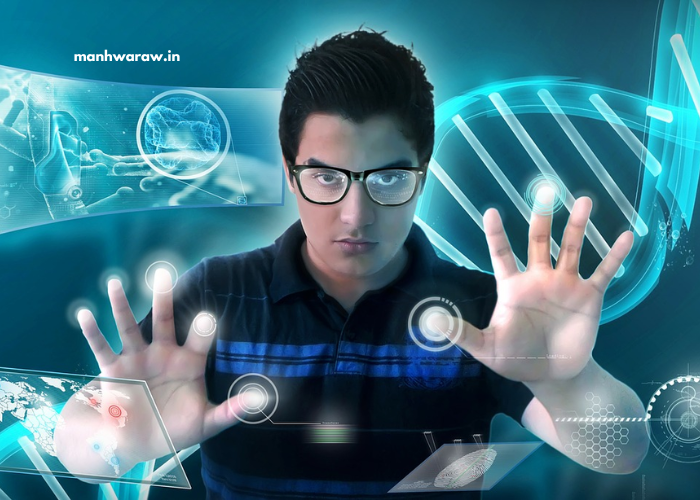Technology has transformed the world in ways that were once unimaginable. From life-saving medical devices to artificial intelligence (AI) that revolutionizes industries, tech innovations are now at the core of modern society. As we continue to develop new technologies, our understanding of the world—and our place in it—is constantly evolving. Today, there are numerous innovations that are not just shaping the future but are actively changing the present. In this article, we will explore some of the most influential tech innovations that are making a significant impact on various sectors of society.
Artificial Intelligence (AI) and Machine Learning
Transforming Industries
Artificial intelligence and machine learning (ML) are undoubtedly among the most transformative technologies of our time. AI refers to the simulation of human intelligence in machines, while ML involves algorithms that enable systems to learn and improve from experience without being explicitly programmed. Together, these technologies are changing how we interact with machines, how businesses operate, and how products are designed and produced.
AI is already widely used in many industries, from healthcare to finance. In healthcare, AI algorithms can analyze medical images with precision, aiding doctors in diagnosing conditions like cancer or neurological disorders. In finance, AI-powered systems are used to detect fraud and optimize trading strategies. Furthermore, machine learning models help companies predict consumer behavior, manage supply chains, and optimize marketing strategies.
The increasing reliance on AI and ML is only the beginning. With advancements in natural language processing (NLP), such as ChatGPT, AI can engage in meaningful conversations, assist in customer support, and create content, making it a valuable tool for businesses worldwide.
Revolutionizing Personalization
One of the key areas where AI is making a significant impact is in personalization. Companies are leveraging AI to provide more tailored experiences for their customers. For example, AI-driven recommendation engines are at the heart of platforms like Netflix, Spotify, and Amazon. These engines use data analysis to understand user preferences and recommend products, services, and content based on individual tastes.
Beyond entertainment, AI is also transforming the retail sector. AI algorithms can personalize product recommendations, optimize pricing strategies, and provide tailored customer service, ultimately enhancing the consumer experience.
Blockchain Technology
Securing Digital Transactions
Blockchain technology has emerged as one of the most revolutionary innovations in the digital space. Initially popularized by cryptocurrencies like Bitcoin, blockchain is a decentralized, distributed ledger that securely records transactions across multiple computers. Each “block” in the chain contains data about transactions, and once a block is added to the chain, it is nearly impossible to alter or hack.
Blockchain’s main benefit lies in its ability to provide a high level of security and transparency. This has wide-ranging implications, particularly in sectors like finance, supply chain management, and even healthcare. In finance, blockchain enables secure peer-to-peer transactions without the need for intermediaries like banks. It also has the potential to make financial systems more inclusive, allowing people without access to traditional banking services to participate in the global economy.
In the supply chain sector, blockchain can be used to track goods from origin to destination, providing transparency and reducing the risk of fraud. For instance, blockchain has been used to ensure the authenticity of products such as luxury goods and pharmaceuticals, safeguarding consumers against counterfeiting.
Beyond Cryptocurrencies
While blockchain’s use in cryptocurrency has garnered much attention, its potential goes far beyond digital currencies. Blockchain has applications in various fields, such as voting systems, intellectual property protection, and even environmental sustainability. By ensuring the integrity of records, blockchain can help mitigate corruption and increase accountability in various industries.
Internet of Things (IoT)
Connecting the World
The Internet of Things (IoT) refers to the network of physical objects embedded with sensors, software, and other technologies to connect and exchange data over the internet. From smart home devices like thermostats and light bulbs to industrial machinery and health-monitoring wearables, IoT is revolutionizing how we live and work.
In homes, IoT devices enable greater convenience, energy efficiency, and security. Smart thermostats like the Nest allow homeowners to adjust their heating and cooling systems remotely, saving energy and reducing costs. Similarly, smart lighting systems like Philips Hue enable users to control the brightness and color of their lights from their smartphones.
Industrial Applications of IoT
IoT is also transforming industries, particularly manufacturing and logistics. In the manufacturing sector, IoT sensors are used to monitor machinery and detect signs of wear and tear before they result in costly breakdowns. This predictive maintenance saves companies time and money by reducing downtime and improving operational efficiency.
In logistics, IoT enables real-time tracking of shipments, helping businesses optimize delivery routes, reduce fuel consumption, and improve customer satisfaction. By providing greater visibility into supply chains, IoT helps businesses become more agile and responsive to changes in demand.
Healthcare and Wearable Devices
In healthcare, IoT is driving the development of wearable devices that track vital signs like heart rate, blood pressure, and glucose levels. These devices empower individuals to take control of their health by providing real-time data that can be shared with healthcare providers for more personalized care.
Wearable devices like fitness trackers are also changing how people approach wellness. By tracking physical activity, sleep patterns, and nutrition, these devices help users make informed decisions about their health and fitness routines.
5G Technology
Ultra-Fast Connectivity
5G technology promises to revolutionize communication by providing faster speeds, lower latency, and greater connectivity than ever before. As the next generation of mobile network technology, 5G is poised to enable a wide range of new applications, from autonomous vehicles to remote surgeries.
With download speeds up to 100 times faster than 4G, 5G will enhance everything from streaming and gaming to cloud computing and virtual reality. The increased bandwidth of 5G allows for more devices to connect to the internet at once, making it a critical enabler of the Internet of Things (IoT). In fact, the widespread adoption of 5G will facilitate the growth of smart cities, where everything from traffic lights to waste management is connected and optimized.
Enabling Autonomous Vehicles
One of the most exciting applications of 5G technology is in the field of autonomous vehicles. Self-driving cars rely on real-time communication with other vehicles, infrastructure, and traffic management systems. 5G’s low latency ensures that this communication happens almost instantaneously, allowing for safer and more efficient driving.
With 5G, autonomous vehicles will be able to exchange data in real-time, improving navigation, reducing accidents, and enhancing the overall driving experience. This technology will also support the development of connected transportation systems, which will improve public transport efficiency and reduce traffic congestion.
Quantum Computing
Unlocking Unprecedented Power
Quantum computing is one of the most exciting and potentially disruptive tech innovations on the horizon. Unlike classical computers, which use bits to process information in binary form (0s and 1s), quantum computers use quantum bits (qubits), which can exist in multiple states simultaneously. This enables quantum computers to perform calculations at an exponentially faster rate than traditional computers.
While quantum computing is still in its early stages, it has the potential to solve complex problems that are beyond the capabilities of classical computers. For instance, quantum computers could revolutionize drug discovery, optimize supply chains, and break encryption codes. In the field of artificial intelligence, quantum computing could accelerate machine learning algorithms and improve the ability of AI systems to analyze vast amounts of data.
Implications for Industries
Quantum computing could have profound implications across industries. In finance, it could be used to optimize trading strategies and manage risk in real-time. In healthcare, quantum computing could accelerate the development of personalized medicines and treatments by simulating molecular interactions at an unprecedented scale.
However, the full potential of quantum computing will not be realized for some years, as scientists continue to overcome the challenges of building stable and scalable quantum computers.
Renewable Energy Technologies
Powering a Sustainable Future
As the world grapples with the challenges of climate change, renewable energy technologies are playing a pivotal role in transitioning to a sustainable future. Innovations in solar, wind, and energy storage are helping to reduce our reliance on fossil fuels and mitigate the environmental impact of energy production.
Solar energy has seen significant advances in efficiency, with new materials and technologies allowing solar panels to capture more sunlight and generate more power. Wind energy has also grown in popularity, with larger and more efficient turbines capable of generating electricity for entire communities.
Energy storage technologies, such as lithium-ion batteries, are making it possible to store renewable energy for use when demand is high or when the sun isn’t shining, or the wind isn’t blowing. This makes renewable energy more reliable and ensures that clean power is available even when natural resources are not.
Smart Grids and Energy Management
The development of smart grids, which use digital technology to monitor and manage the distribution of electricity, is another key innovation. Smart grids enable more efficient energy use by adjusting the flow of electricity based on real-time demand. This reduces energy waste, lowers costs, and enhances the stability of the power grid.
Conclusion
In conclusion, tech innovations are undeniably transforming the world in ways that are both exciting and challenging. From artificial intelligence and blockchain to 5G and quantum computing, these technologies are reshaping industries, enhancing our daily lives, and solving global problems. As we continue to embrace new innovations, the world will undoubtedly become more interconnected, efficient, and sustainable.
As we look toward the future, it’s clear that these advancements in technology will not only change how we work, live, and communicate, but also redefine what is possible. By staying ahead of the curve and leveraging these innovations, individuals and businesses alike will be better equipped to navigate the challenges and opportunities of the digital age.





